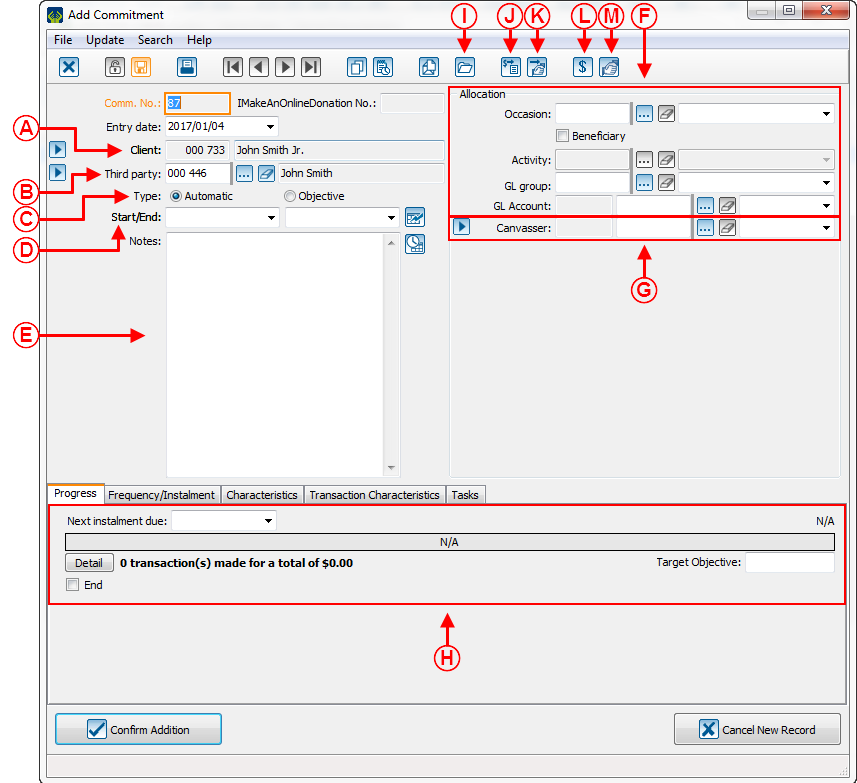Difference between revisions of "ProDon:Commitment Management (Objective vs Automatic)"
Jguillemette (talk | contribs) (→Characteristics tab) |
Jguillemette (talk | contribs) (→Commitment Creation) |
||
| Line 11: | Line 11: | ||
All commitments are created from a client file. Most of the time, you will create a commitment from the one with whom you have an agreement or from the one that will pay for the commitment. | All commitments are created from a client file. Most of the time, you will create a commitment from the one with whom you have an agreement or from the one that will pay for the commitment. | ||
| − | The commitments are divided in 2 types: objective and automatic. For more details, please refer to the sections about the particularities of each | + | The commitments are divided in 2 types: objective and automatic. For more details, please refer to the sections about the particularities of each type. |
<br> | <br> | ||
{| class="wikitable" width="200" cellspacing="1" cellpadding="1" border="1" | {| class="wikitable" width="200" cellspacing="1" cellpadding="1" border="1" | ||
Revision as of 11:52, 4 January 2017
| Commitment Management (Objective vs Automatic) |
Contents
- 1 Introduction
- 2 Commitment Creation
Introduction
A commitment is an agreement taken between a client and you. In ProDon, the commitment refers to this agreement. The commitment notion generally implies several instalments on long term. The commitment will allow you to follow and view several notions, such as the commitment total objective, the sum of money given by the client up to this day as well as the projections to come. The commitment itself does not contain money, but it will be used to create the planned transactions according to the agreement.
Commitment Creation
All commitments are created from a client file. Most of the time, you will create a commitment from the one with whom you have an agreement or from the one that will pay for the commitment.
The commitments are divided in 2 types: objective and automatic. For more details, please refer to the sections about the particularities of each type.
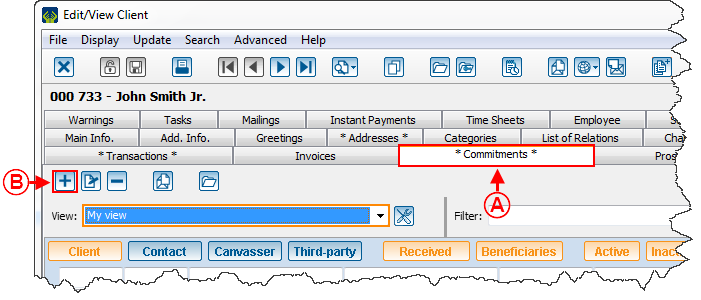 |
| To create a commitment, select the "Commitment" tab of the client file (A) then click on the add button |
Presentation of common elements between the 2 commitment types (Main information and "Progression" tab)
Frequency/Instalment Tab
It is here that you can set the frequency and the instalment amount of the commitment.
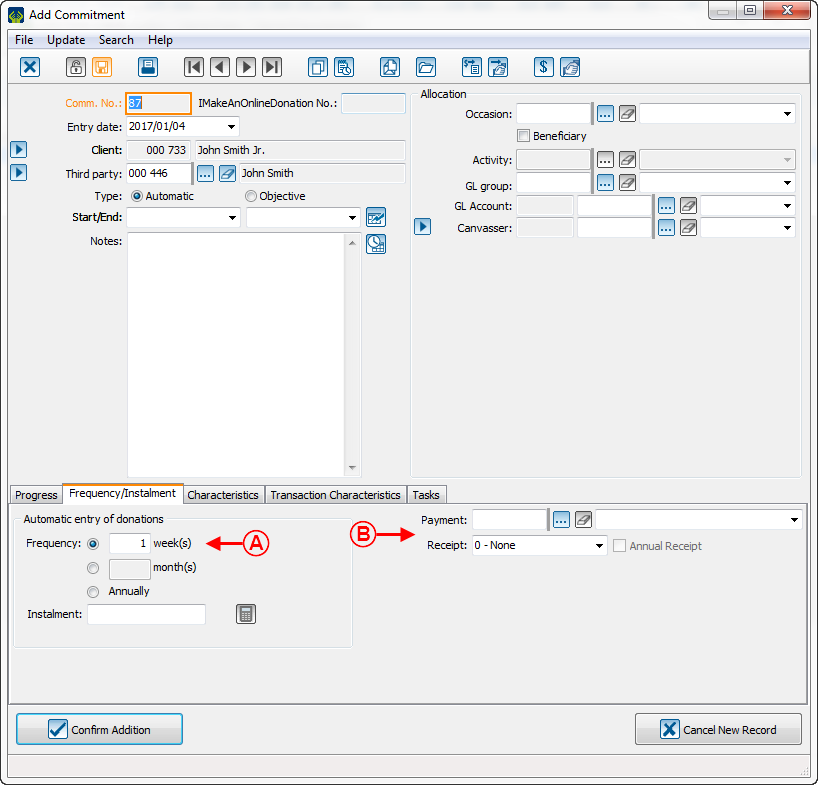
| |
|---|---|
| A: Allows to set the frequency and the instalment amount of the commitment. | B: Allows to choose the payment method used to pay the generated transaction by the commitment. |
Characteristics tab
Allows to add, delete and edit the characteristics that you want to assign to the commitment.
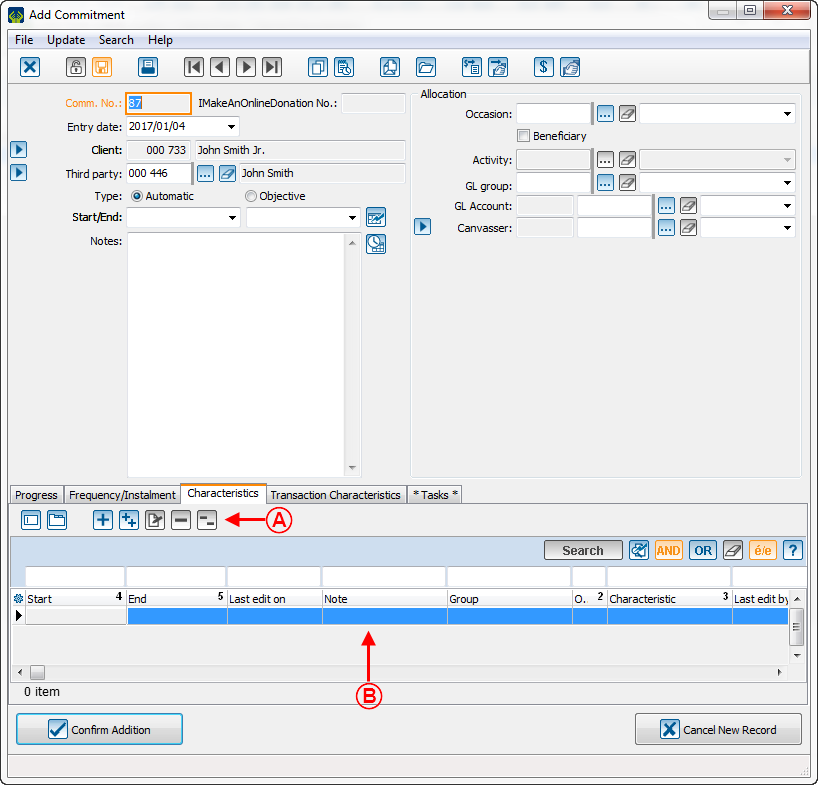
| |
|---|---|
| A: Button allowing to add, edit or delete the commitment characteristics assign to it. | B: Here is the assigned commitment characteristics as well as their details. |
Transaction Characteristics tab
Allows to add, delete and edit the transaction characteristics that you want to assign to the commitment.
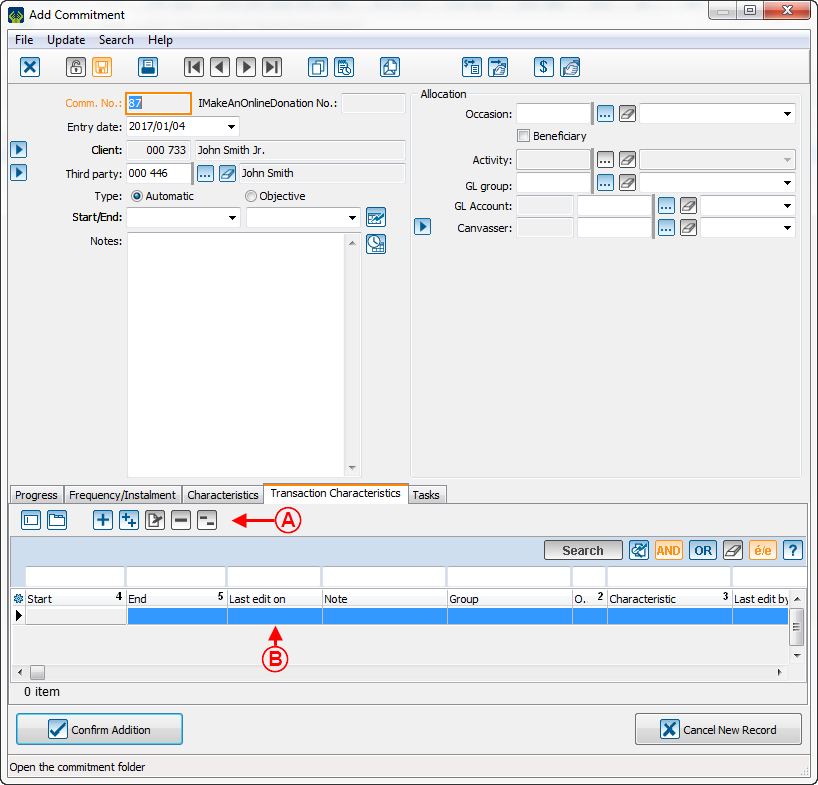
| |
|---|---|
| A: Button allowing to add, edit or delete the commitment transaction characteristics assign to it. | B: Here is the assigned commitment transaction characteristics as well as their details. |
Tasks tab
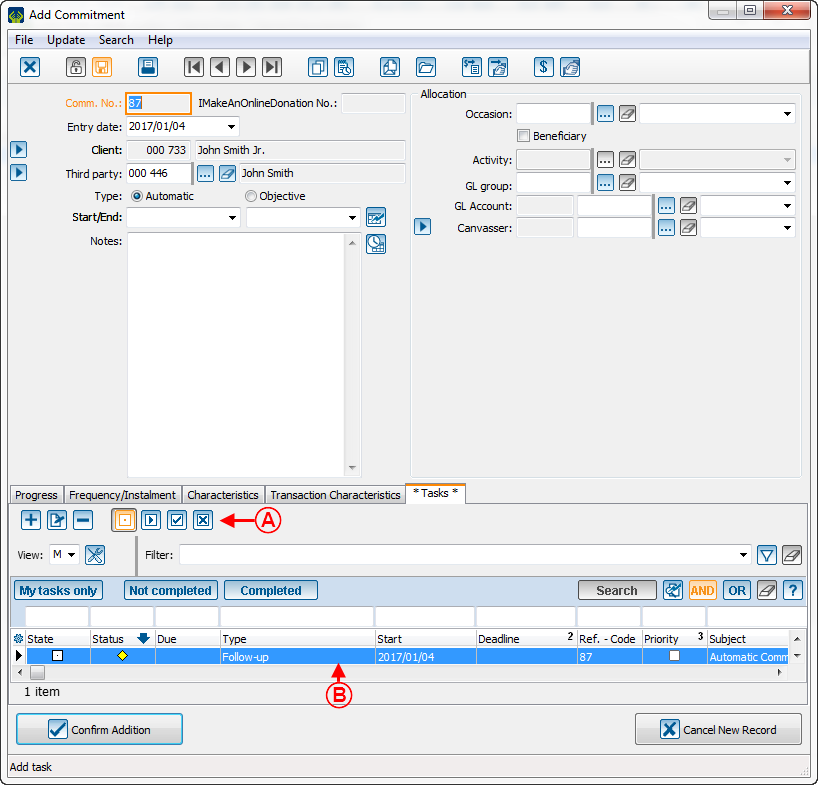
| |
|---|---|
| A: Button to add/edit/delete the tasks linked to the commitment as well as changing their processing status. | B: Details of the tasks assigned to the commitment |
Difference between commitment by objective vs automatic
Commitment by objective
The transactions linked to commitments by objective are created when receiving a payment. This notion applies to commitments needing an action like a cheque process.
Automatic commitment
The transactions linked to automatic commitments will be massively created to a frequency that you can choose. This notion will apply to commitments which does not need any action to trigger the instalment, for example the instalments on the client's payroll or pre-authorized bank transfer.
Document name: ProDon:Commitment Management (Objective vs Automatic)
Version : 5
